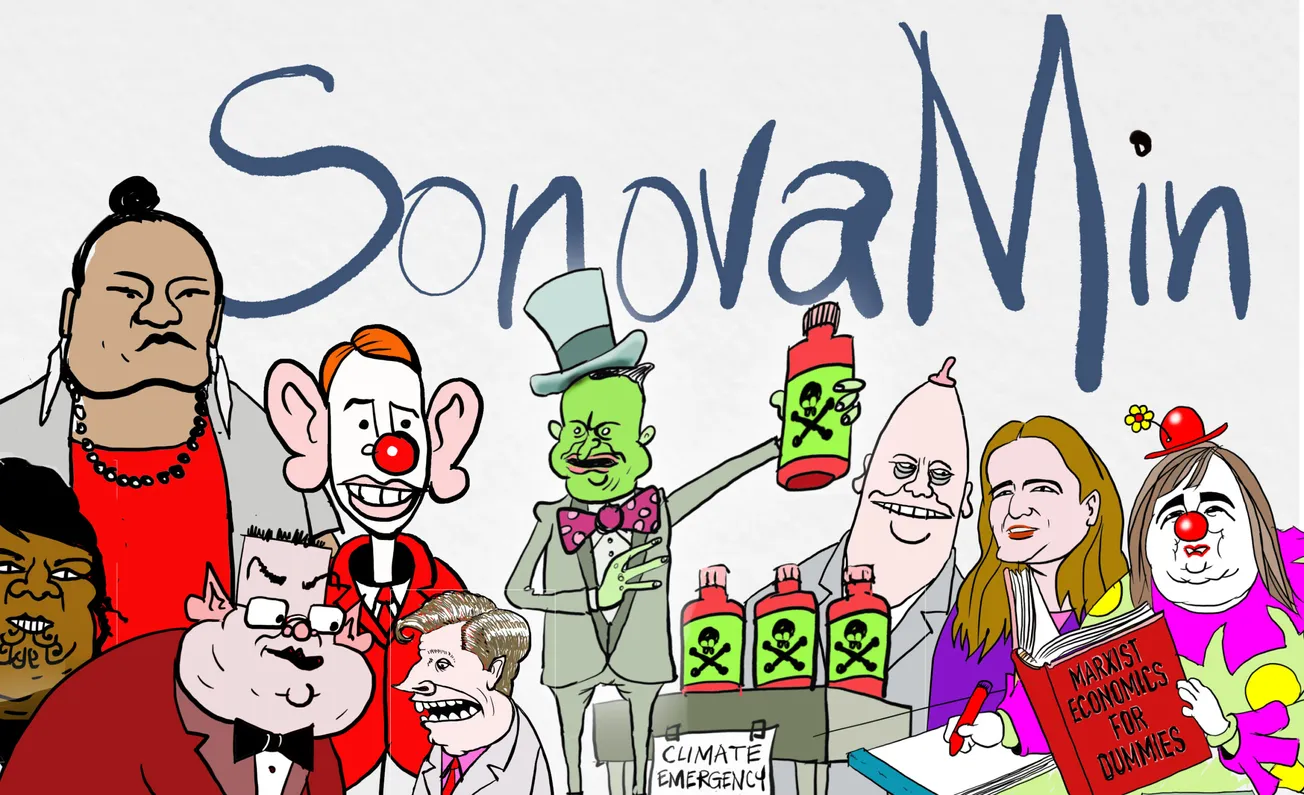Table of Contents
The issue was raised in the Leaders’ Debate amongst issues of the economy, of increasing crime, of education: what about a sugar tax or banning fizzy drinks?
While not exactly a vote-catching topic, it is one that has implications for the health system and for every one of us. Christopher Luxon doesn’t think we need a ban on sugar in schools and instead wants education. Christopher Hipkins thinks fizzy drinks should be banned in secondary schools like they already are in primary schools, and Labour will do this if reelected.
The concept of a sugar tax was later dismissed by Minister of Health Ayesha Verrall, who said sugar taxes were not on her agenda.
“That’s not part of Labour’s tax plan and it won’t be one we implement,” she told RNZ. “I think there is a challenge between the types of proposals that come up from the public health sector to regulate unhealthy food and drink and the reality of people’s lives in terms of the cost of living crisis and the way in which food is culturally embedded in our community.”
Ministers advised taking GST off fruit, veggies would not lower prices (1news.co.nz)
However, Professor Boyd Swinburn, co-chairperson of the Health Coalition Aotearoa and an international expert on obesity, said New Zealand was now lagging behind.
“Half the world’s population has a sugary drinks tax on it. The evidence has been piling up and piling up on its level of impact,” he said. “It’s now obvious that the impact of the sugary drinks tax is that it will almost immediately reduce consumption and it’ll reduce the amount of sugar that the manufacturers put in their products.”
Ministers advised taking GST off fruit, veggies would not lower prices (1news.co.nz)
Predictably, the New Zealand Beverage Council is against the idea that such a tax would be beneficial.
Established in 1993, the New Zealand Beverage Council is the industry association for New Zealand’s non-alcoholic beverage sector. Our members are the brand owners, manufacturers, bottlers and suppliers of New Zealand’s juice, carbonated drinks, flavoured-dairy and bottled water brands.
nz beverage council – Search (bing.com)
There is, it seems, a body of evidence that shows that the introduction of a sugar tax is one of the least effective methods by which to reduce obesity.
[…] McKinsey Global Institute’s 2014 report found that taxing sugar is one of the least effective interventions in combating obesity. The study found that of 40 model interventions, taxation was not in the top ten interventions and that the science supporting taxation as an effective policy intervention was deemed as weak.
According to the McKinsey Global Institute, the most effective way to combat obesity include reformulating drinks, offering smaller portion sizes and providing better education. The New Zealand Beverage Council supports these as effective measures to combat obesity.
nz beverage council / Report
Why make sugary drinks the bad boy here? What about the breakfast cereals loaded with added sugar? Confectionery? Supermarket aisles of biscuits? Bakery goods? How about people exercise some common sense and self-restraint? And, what about…exercise?
What has happened to personal responsibility? The concept of a sugar tax is not going anywhere fast but it keeps coming up on the agenda. A discussion in 2017 The case for and against a sugar tax in New Zealand makes some interesting points for and against, one being that “the poor” would be most affected by such a tax. Why? The New Zealand Treasury is not in favour of a sugar tax, finding that consumer behaviour may negatively affect the move.
A plurality of studies found that groups most at risk from obesity have greater price sensitivity. Studies also found there is a risk of consumers substituting unhealthy but non-taxed products for taxed products, negating any potential health improvements from a tax.
treasury.govt.nz/publications/wp/implications-sugar-tax-new-zealand-incidence-and-effectiveness
Sugar consumption is an issue that personal responsibility would go a long way toward treating. But it is not just an issue about sugar. The obesity problem has been a long time in the making. We regularly eat out. We grab fast food on the run dispensed through convenient drive-through lanes. We have completely reimagined the way in which we purchase, prepare, serve, and consume food. Portion sizes are steadily increasing. The result is predictably that we have an obesity problem that impacts everyone’s health care. Add in the problem we have with dentistry and the problem becomes even greater.
The food we consume away from home is not about food in many cases but is about entertainment. Food courts are not providing meals or sustenance. They are selling a recreational experience. Go into the food court of any mall at any time of the day and observe the fun, amusement, enjoyment and distraction that has absolutely nothing to do with nutrition or meals. Consumption of food laden with sugars and fats has become a leisure activity.
The reformulation of sugary drinks and other sweet foods brings with it its own issues as sugar substitutes are not necessarily healthy choices. The jury is still out on the consumption of sugar substitutes and there are studies to support whichever point of view you wish to present to the market. However, there does seem to be an overall concern that we do not know enough about these sugar substitutes and their long-term effect on human physiology. These alt-sugars are almost impossible to avoid in any processed foods, another excellent reason for increasing the consumption of non-processed fruit and vegetables; we preach to the converted with such arguments.
The long-term effects of sugar substitutes are largely unknown. Most of the safety studies done are short-term because it is difficult and costly to do years long trials.
Each sugar substitute has different chemical structures and needs to be considered separately, said Dr. Walter Willett, a nutrition researcher at the Harvard T.H. Chan School of Public Health.
“We can’t generalize, and for most of these we have very limited data on the effects of long-term use,” he said via email.
But studies have suggested that some sweeteners may exacerbate diabetes risk and disturb the balance of good and bad microbes in the gut, Sylvetsky and other researchers said.
It’s hard to tell what’s cause and what’s effect, though, because people who consume more low-calorie sweeteners might already be vulnerable or have an illness such as diabetes, which is why they’re eating ‘diet’ or ‘no sugar added’ products in the first place, said Sylvetsky.
But longtime industry critic Marion Nestle, an emeritus professor at New York University, said the food industry underplays the health concerns around sweeteners.
“The makers and commercial users of sugar substitutes want us to keep buying their products and do everything they can to convince you the sweeteners are delicious, harmless, and good for you, regardless of what critics say,” she said via email. “The new studies coming out that associate these chemicals with chronic disease are not good for corporate bottom lines, which is why they so actively cast doubt on inconvenient research.”
Sweetener safety: Are sugar substitutes bad for you? What science says (usatoday.com)
So no sugar tax this time around. But next?
In the meantime, the election rolls ever closer and with more pressing issues than a sugar tax – but healthcare is in crisis mode.








